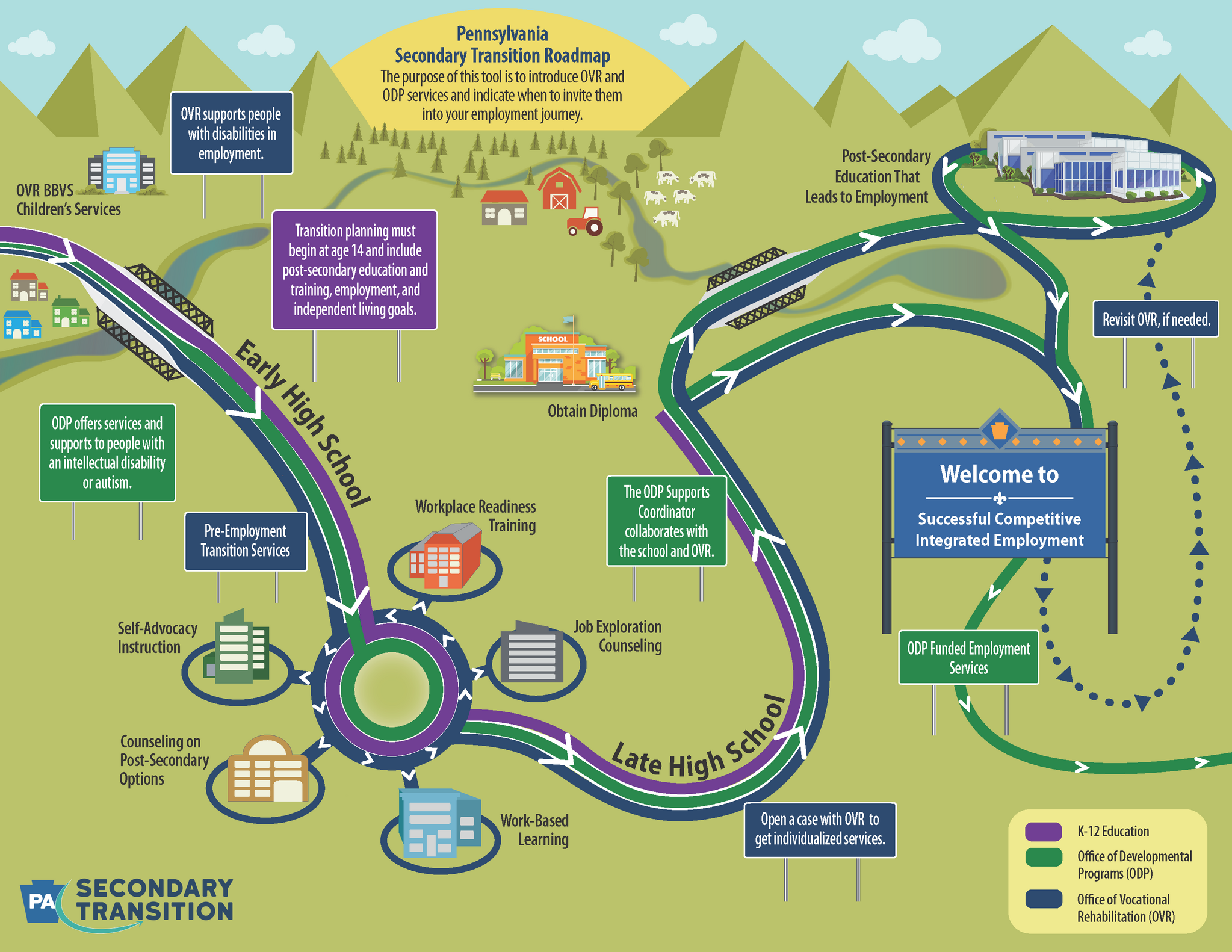Secondary Transition Services
Secondary Transition Services
Secondary transition involves equipping students with disabilities with the skills and resources necessary for their lives beyond high school. It encompasses most secondary education, vocational training, employment opportunities, and community integration. Students in middle school or early high school will engage in activities to foster career awareness and exploration. This process extends throughout high school, supporting positive outcomes with instruction and community engagement.
Below are several resources to help guide you and your child. For additional information, please visit the PA Secondary Transition website. It is continually updated with the latest transition events and resources for youth, young adults, parents, and professionals to facilitate a young person’s progress toward post-secondary goals related to education, employment, and community living.
What is secondary transition?
For high school-age students with disabilities:
- a bridge between a school program and the opportunities of adult life;
- involves partnerships between student, family, school and the community;
- builds on strengths, interests and preferences; and addresses needs; and
- identifies services and supports needed to reach post-secondary goals of education/training, employment and community engagement
When do transition services begin?
Transition services must be addressed in the student's IEP in the year in which the student turns 14 and then annually each year after or when requested by the student/family. The IEP team does not have to wait until the student’s approaching 14th birthday year to consider the student’s transition needs.
Who is the Local Education Agency (LEA) and what is its purpose?
The LEA is the Dover Area School District. Its responsible for supporting the transition planning as part of the IEP process that helps the student identify and achieve post-secondary goals through:
- Assessment and Planning
- Annual goal and post-secondary goal setting
- Coordinated classes, activities and referrals to community agencies
What is the Office of Vocational Rehabilitation (OVR)?
OVR is responsible for supporting the transition planning as part of Pre-Employment Transition Services (Pre-ETS) for potentially eligible students who may need these services and other VR transition services for eligible students. Pre-ETS may include:
- instruction in self-advocacy
- counseling on enrollment in post-secondary educational/training programs
- job exploration
- workplace readiness training
- work-based learning
This Memorandum of Understanding [MOU] (a legal agreement between two or more organizations) clarifies that:
- OVR and BSE support the transition of students with disabilities from high school to post-school employment-related activities and competitive, integrated employment
- OVR and BSE provide informational training and resources for youth and families
- OVR and BSE roles and responsibilities are clearly defined
- A non-binding agreement that sets forth a cooperative arrangement between the agencies
Pennsylvania Secondary Transition Roadmap
The Roadmap illustrates how the Pennsylvania Department of Education, the Office of Vocational Rehabilitation (OVR), and the Office of Developmental Programs (ODP) can work together to ensure the best outcomes for students. Download the Roadmap





